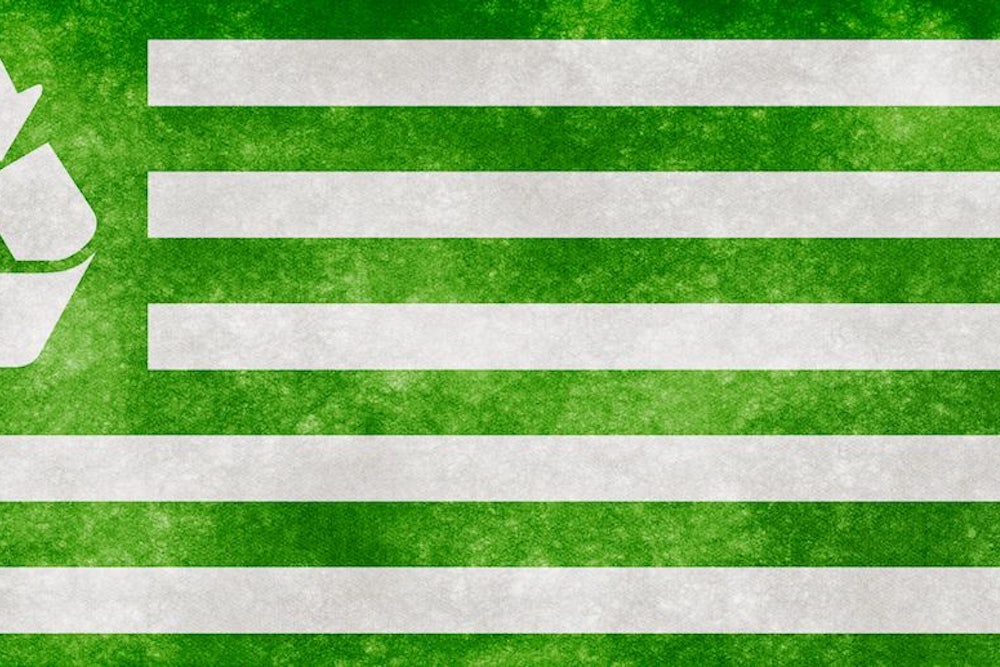Three academics recently devoted themselves to a subject that, they say, has received "surprisingly little attention": How to convince liberals and conservatives, respectively, to recycle.
But is the lack of attention so surprising? Liberals recycle because they generally care about protecting the environment, so appeals should pluck their bleeding-heartstrings. Conservatives generally don't believe in environmentalism, seeing it as a wicked liberal scheme, so don't even bother trying to get them to recycle. Seems obvious enough, no?
But Blair Kidwel, Adam Farmer, and David M. Hardesty, using college students as subjects, found that indeed it is possible to convince conservatives to recycle—and it has nothing to do with obeying the law. All you have to do is put the appeal alongside an American flag, and suddenly recycling seems patriotic!
In another study, according to a press release, "Consumers who call themselves liberals were more enthusiastic about recycling when the focus was on fairness and reducing harm to others to create a sense of feeling good. Meanwhile, consumers who call themselves conservatives were more likely to express an intention to recycle when appeals focused on group membership, duty, or obligation to authority."
One appeal read: "Your actions can help care for others and allow the greatest good for society." And another: "Your actions can help us do our civic duty because recycling is the responsible thing to do in our society. Because of people like you, we can follow the advice of important leaders." It's not hard to guess which appeal was more effective with which political ideology.
Such appeals recall the oft-cited—and deeply problematic—theory of psychologist Jonathan Haidt, that liberals base their moral reasoning on principles of fairness and justice while conservatives care about authority, sanctity, and group membership. (Indeed, the study's authors, who published their conclusions in the Journal of Consumer Research, cite Haidt's research as a motivation for the experiment.) And as silly as these appeals seem, much more ideological ones have been tried to get Americans to go green.
The Office of War Information and Public Relations, for example, assured Americans that recycling paper would help the Allies sock Hitler right on the nose.
And a propagandist for the U.S. Navy made this racist, nationalistic appeal to get Americans to recycle metal:
The present has not been immune to such ugly appeals. In 2010, the left-leaning American Values Network ran ads on billboards and the side of buses showing Mahmoud Ahmadinejad waving and the words, "Iran is making a KILLING." In considerably smaller font below, the ads added, "It's time for action on clean energy + climate"—an appeal for Congress to pass proposed clean-energy legislation. To no avail: The bill failed. The ads were merely offensive, not effective.
So perhaps a subtle sell, with a few American flags, is the best way to get people on board. Or better yet, why not a depiction of George Washington high-fiving a bald eagle as he slam-dunks a can of Budweiser into a recycling bin?
Robert Long is a web intern at the New Republic. Follow him on Twitter: @rgblong
